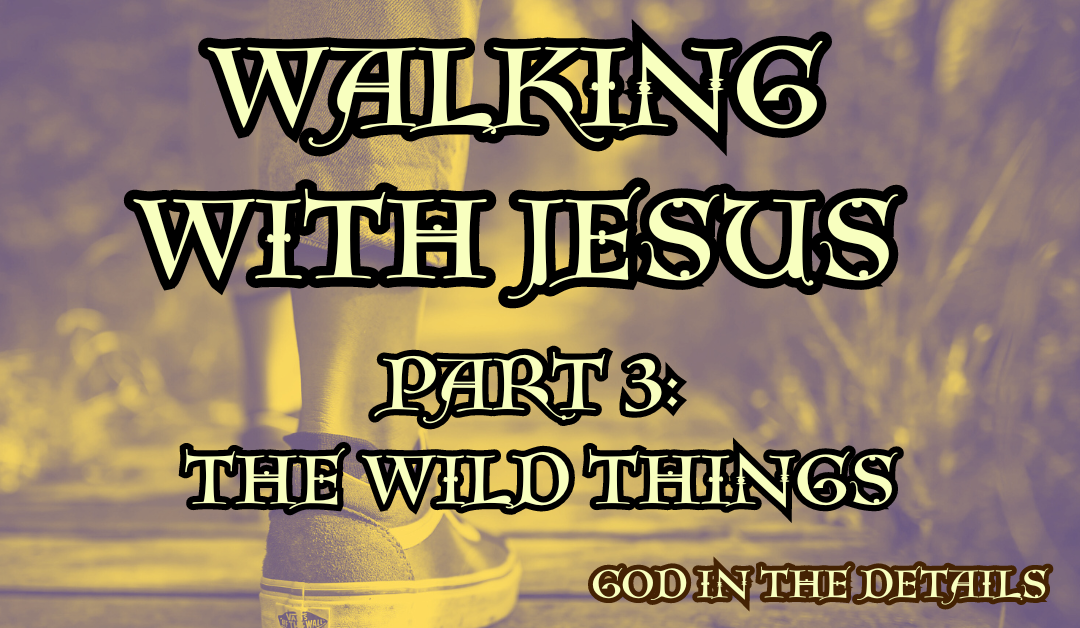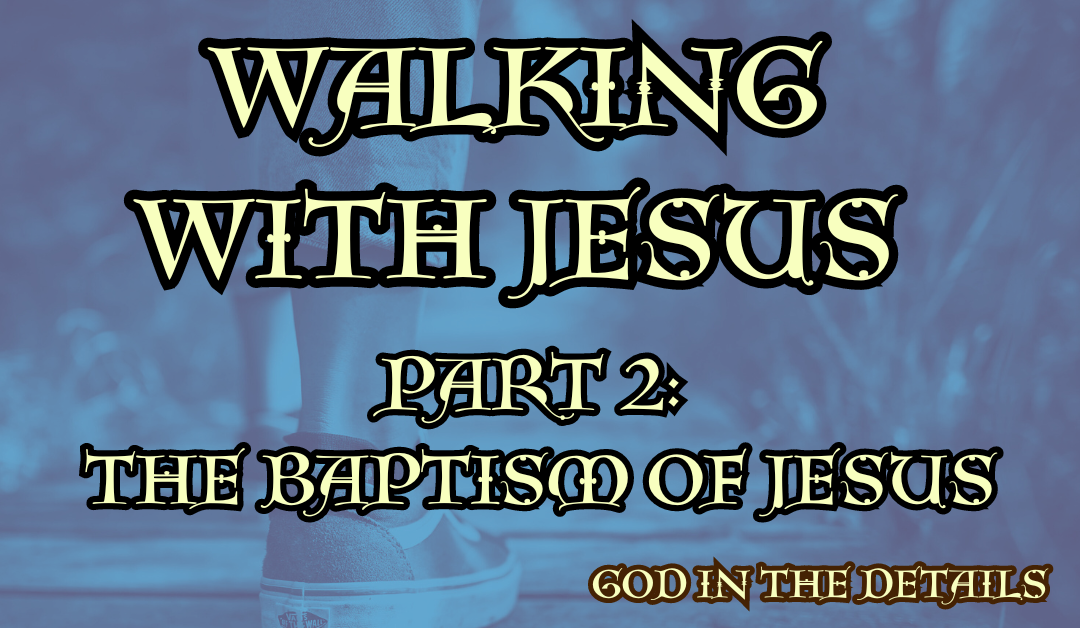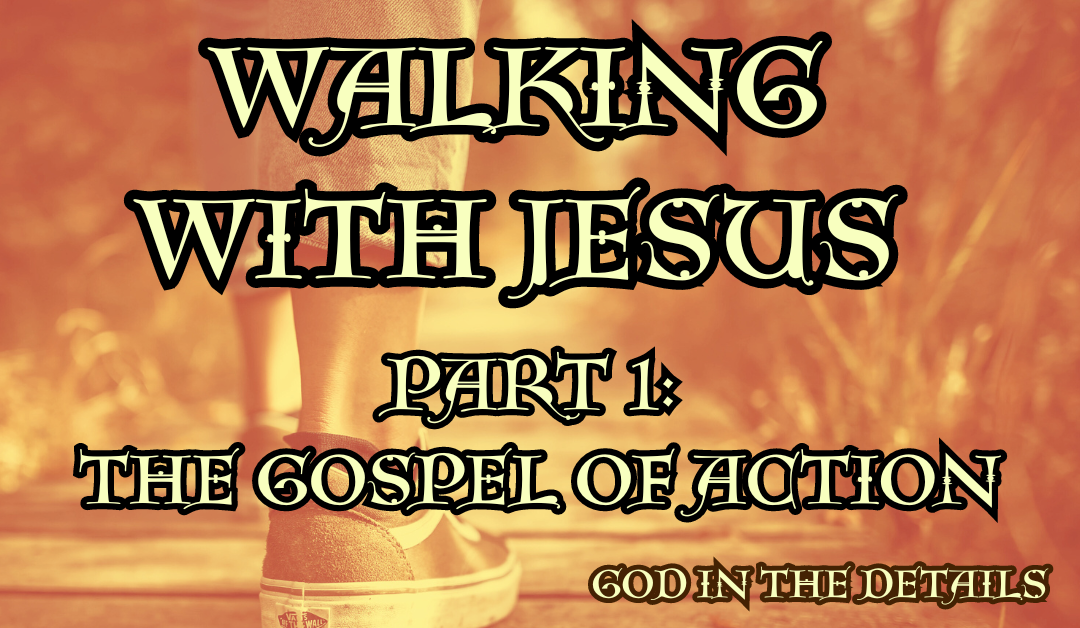
Walking With Jesus 3: The Wild Things (Mark 1:12-13)
“At once the Spirit sent him out into the wilderness,and he was in the wilderness forty days, being tempted by Satan. He was with the wild animals, and angels attended him.”
Mark 1:12-13, NIV
After His baptism Jesus is sent to the wilderness. The other narratives found in Luke and Matthew give us a lot more detail regarding the temptations that Jesus had to face.
Mark on the other hand, strikingly keeps it short – so short that if you’re not careful you might miss it.
Mark only gives us five points in these 2 verses.
- Jesus is sent out by the Holy Spirit into the wilderness (Matthew 4:
- He spends forty days in the wilderness.
- He is tempted by Satan.
- There are wild animals.
- And angels attended Him.
When we look at the narratives in the other Gospels (Matt 4 and Luke 4) we find that all these points are there as well – except for one.
Mark chooses to specifically mention that Jesus was in the wilderness with the wild animals.
The word used in the Greek to describe these animals is ‘thérion’ – translated in the King James Version as ‘wild beasts’ it more properly and specifically indicates a brutal, savage and ferocious creature.
A few things come to mind.
First of all is the idea that the wilderness is a dangerous place – full of wild, feral things.
Yet Jesus makes His journey unscathed – unafraid – and victorious.
He makes it through safely and soundly.
In Isaiah 35 we read about the highway – the Way of Holiness that runs through the desolate wilderness of this life – and in verse 9:
No lion will be there,
nor any ravenous beast;
they will not be found there.
But only the redeemed will walk there, (NIV)
Where Jesus is, the wild things are kept at bay.
He is our shield. He is our protection. He is the Hand of God upon our lives.
But it doesn’t stop there.
The wilderness is a desolate place, a barren place.
Isaiah 35:1-2:
The desert and the parched land will be glad;
the wilderness will rejoice and blossom.
Like the crocus, 2 it will burst into bloom;
it will rejoice greatly and shout for joy.
The glory of Lebanon will be given to it,
the splendor of Carmel and Sharon;
they will see the glory of the Lord,
the splendor of our God. (NIV)
We see, here in Isaiah, a story of transformation and change. The parched land becomes glad. The wilderness rejoices and blossoms.
In Ezekiel 34 we see a similar promise. The Lord promises the coming of ‘a second David’. We read in verse 25: “‘I will make a covenant of peace with them and rid the land of savage beasts so that they may live in the wilderness and sleep in the forests in safety.”
We see in the Book of Mark a compelling narrative of transformation and renewal – similar to those found in the prophetic passages above. We see exorcisms and deliverance taking place, we see healing, we see restoration – we see Jesus coming into the fray to ‘tie up the strong man’ (Mark 3) – those things that seek to attack the mind, the body and the soul.
He does so without fear, confronting the spiritual forces of darkness and evil with boldness and power – driving the ‘wildness’ out of a man in the synagogue (Mark 1:21-26). He is found driving the ‘wildness’ out of the man in Gadara (Mark 5:1-20).
Jesus comes to restore creation.
His creation.
This is what Mark is hinting at. He shows us a Jesus who walks amidst the feral things, the wild things – and brings them to peace. There is no bloodshed with Jesus in the wilderness. He walks through unharmed.
And He shows us the Way of Holiness: Jesus resisting the temptations that the Devil throws at Him.
When we walk through the desolate places – the wilderness places – surrounded by the brutal, savage, wild things of this world – we are not walking alone. Jesus has gone before us. He is there with us through the indwelling of His Spirit – to guide us through, to lead us onward through the desolation upon that road where there is no lion, where the ravenous beast does not come.
And as long as we walk upon the Way – the Way He came to show us – resisting the Devil, standing firm in our faith and pursuing holiness – as long as we follow Jesus, not looking to the left or the right, our hearts set upon His Way and His Way set within our hearts – the wild things will not devour us.
The wild things of sin and shame will not devour us.
The wildness will be driven out of us by the peace that comes from His presence in our lives.
Reflect:
- What are some of the wild things you have encountered in your life? How has Jesus banished them from your land?
- Read James 4:4-10. What does it mean to walk on the Way that Jesus has prepared? What does resisting temptation look like? How do we pursue holiness in our daily coming and going in the wilderness of this life?
Prayer: Lord, You are my source and shield. Your hand rests upon me. I pray that You will be with me in the wilderness of this world today and that Your presence will keep the wild things, the brutal things, the ravenous things at a distance. Shut the mouth of the roaring lion that seeks only to devour. Quiet the growling of the enemy. Let Your Word be a light unto my feet today. Help me Lord to submit to You fully – to live a life of purity, obedience and holiness. Help me not look to the left or the right, but give me the wisdom to keep my eyes and my heart set upon You. Keep me from temptation, keep me on Your Way – strengthen me through Your presence. Give me strength to stand strong against the onslaught of the enemy. Let me enter this day boldly, knowing that You are with me. In Jesus Name. Amen.




